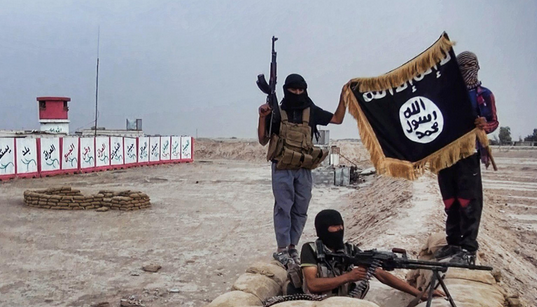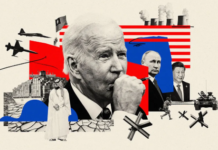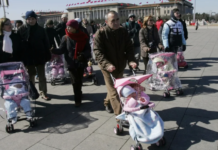By Eli Troen
It’s backbreaking work to keep a garden looking nice. Planting the seeds, watering the sprouts, plucking the weeds. ISIS, or the Islamic State of Iraq and Greater Syria, is a weed, and it needs to be plucked. An Islamist extremist group centered in the Middle East, ISIS is attempting to establish a powerful, autonomous Islamic state. ISIS is a growing threat to the people of the Middle East, Islamists included, and is even considered by some to be a greater threat to the world.
Once a part of the extremist group al-Qaeda, ISIS splintered off due to differences in methods. By utilizing and purloining the abundant oil in the area to fund its campaigns and by amassing support from Sunni followers, ISIS has become self-sustaining, exploiting the resources and people unlucky enough to be within their reach. ISIS captures areas of land and extorts the people who “have no regular access to water, and are trapped between thirst and ISIS’ guns”. In one of his first attempts to help quell the unrest in the region, President Barack Obama authorized airstrikes on the group. In response, ISIS released videos depicting the public executions of American reporter James Foley and journalist Steven Sotloff, calling for the stop of those airstrikes. The situation seems to be escalating, with many Middle Eastern citizens being caught up in the chaos, many radicals joining ISIS’s cause, and many other countries preparing for action. So, should the United States of America meddle in Middle Eastern affairs, or would it be better to sit this one out?
I believe that we need to be and continue being involved with the turmoil in the Middle East. U.S. Defense Secretary Chuck Hagel says that ISIS is “beyond anything that we’ve seen”; ISIS represents a large enough threat that it is our duty to quell the group. We have to get involved with ISIS. The United States was the catalyst for this extremist group to rise to power (though, it is possible that the group could have risen without the U.S.’s involvement), and if we don’t clean up our mess, the issue could escalate even further. We need to find a balance. We can’t and shouldn’t go in with guns blazing, but we mustn’t sit idly by while a militant group endangers not only the lives of Middle Easterners but our own, as well. We need a middle-of-the-road plan,—one that will both snuff out the ISIS threat and keep our nation and its people safe—and President Barack Obama’s plan is just that.
Obama’s plan for dealing with ISIS is a “middle-of-the-road” attempt to deal with this situation. Instead of trying to amass a large force and export a plethora of troops to the Middle East, Obama has and will continue to send aid, in the form of weapons and money, to the Free Syrian Army (F.S.A.), in hopes of halting the growth and spread of ISIS. Congress was split over this decision, with the vote being 273-156 in favor of the plan. Many are not satisfied with the outcome.
Some think our effort is not enough. Representative Jack Kingston from Georgia said, “We can’t have a half-pregnant war…We have got to fight to win and wipe out this terrorist surge”. The problem with sending too much aid or with sending in our own troops is that it could easily turn into a repeat of President Bush’s “War on Terror”, with our forces being caught up trying to make changes and dealing with matters that are not our concern. The United States’ involvement in Iraq and Iran led to an even greater amount of civil unrest and brought about a new, bigger threat: ISIS. Who is to say a strong opposition won’t bring about an even worse situation and an even more gargantuan threat? Another issue with all-out war is money. If we put too much effort into this war, we will drain our supplies and place this nation in even greater debt than it already is. We also have to think of our fantastic troops. Our troops have fought hard over this past decade, and we should understand the situation better before committing them to war again.
Conversely, some think that our effort is too much. Some argue that we shouldn’t enter the Middle East, that ISIS is either not a big enough threat or that we might worsen the situation. If we follow a non-intervention plan, our failure to act could result in more brutality and increased aggression from ISIS, endangering the lives of Middle Eastern inhabitants. Not intervening would allow ISIS to grow, absorbing more oil supplies, more land, and more peoples. The militant group might even become bold enough and try to attack our great nation.
Shawn Doyle of the Potomac Post thinks that “Allowing ourselves to be goaded into open warfare would be to fall straight into this trap”, a trap to lure our nation into a costly conflict that would only increase ISIS’s power. Too high a level of involvement—and none at all—could have adverse effects. The best solution is the middle ground. Sending aid to the Syrians could be the easiest and most efficient way to deal with the issue. We don’t have to endanger our troops, and the F.S.A. can stop ISIS’s growth. We also need to continue launching airstrikes aimed at ISIS’s strongholds and their money sources: oil fields. By cutting off their income, we can bring the group’s heinous activities to a halt. All of these actions, in combination with our alliances and the U.N.’s efforts, can solve this issue.
This is certainly not a perfect plan, but it could be the most effective. Our ultimate goal is to stop ISIS and other terrorist groups that threaten our freedoms and our lives, but like those pesky weeds, they always grow back. You can’t destroy an idea. Right now, we need to continue our plan to halt ISIS, but there will always be another threat. As of now, we need to be content with plucking those weeds.









